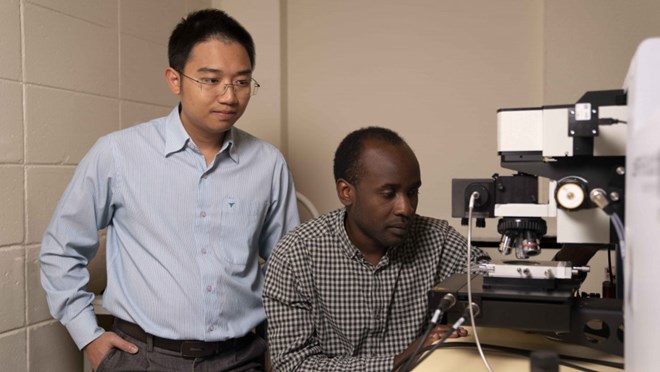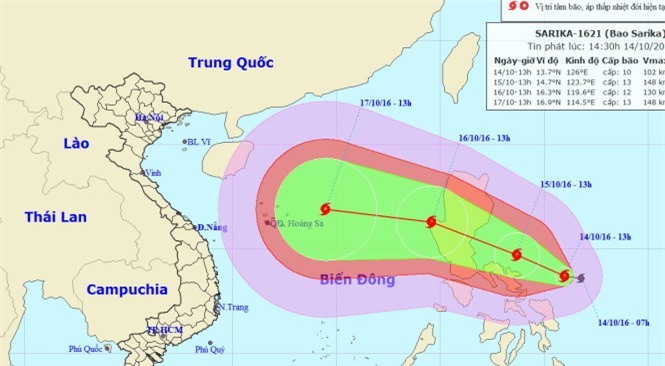 |
| Dr Nguyen Trong Hieu (L) and his colleague. (Photo: ANU) |
Dr. Hieu said the 2D materials are hundreds of thousands of times thinner than a human hair and invisible to the naked eye. The material could one day revolutionise technology like solar cells, mobile phones, and sensing devices.
While scientists have been researching these materials for some time, their full potential for applications such as solar cells and light detectors has been difficult to quantify.
The research team led by Dr. Hieu used an innovative approach to show the maximum voltage achievable through light absorption for the single-atom-thin materials, reported the ANU.
The researchers were able to exfoliate layer by layer, until only a single layer of atoms remained.
The team then studied the light emitted from the various materials using a microscope equipped with a highly sensitive camera and detector.
The ANU researchers were then able to look at the materials and predict their performance potential based on the properties of the detected light.
The results show that monolayers could provide a voltage of more than 1V, as powerful as established solar technologies.
Dr. Hieu said the discovery is important as it gives scientists a target to work towards in terms of electrical output.
If monolayers were coated on car windows, cell phone screens, or even watches, people would barely see them. One day those tools could harvest sunlight to help power itself, Dr. Hieu said.
Born in 1988, Hieu received his PhD in engineering (photovoltaics) from the ANU in 2016. In 2017, he was a visiting scientist at the US’s National Renewable Energy Laboratory. Currently, he is a research fellow and lecturer at the ANU. –VNA

Vietnamese scientists contribute to research about black holes
Capturing the recent image of the black hole was the great achievement of a group of more than 200 researchers, including Vietnamese scientists, according to the Vietnam Space Center.

Vietnamese scientists make stem cell drug for treating lumbar degenerative disc
Vietnamese scientists make stem cell drug for treating lumbar degenerative disc

Data assimilation remains difficult for Vietnam’s scientists
In order to give accurate weather forecasts, it is necessary to have good data assimilation, but this is still challenging for Vietnamese researchers.
 A research team led by Vietnamese national Nguyen Trong Hieu from the Australian National University (ANU) has demonstrated for the first time the maximum potential of ultra-thin 2D materials to generate electricity using sunlight.
A research team led by Vietnamese national Nguyen Trong Hieu from the Australian National University (ANU) has demonstrated for the first time the maximum potential of ultra-thin 2D materials to generate electricity using sunlight.